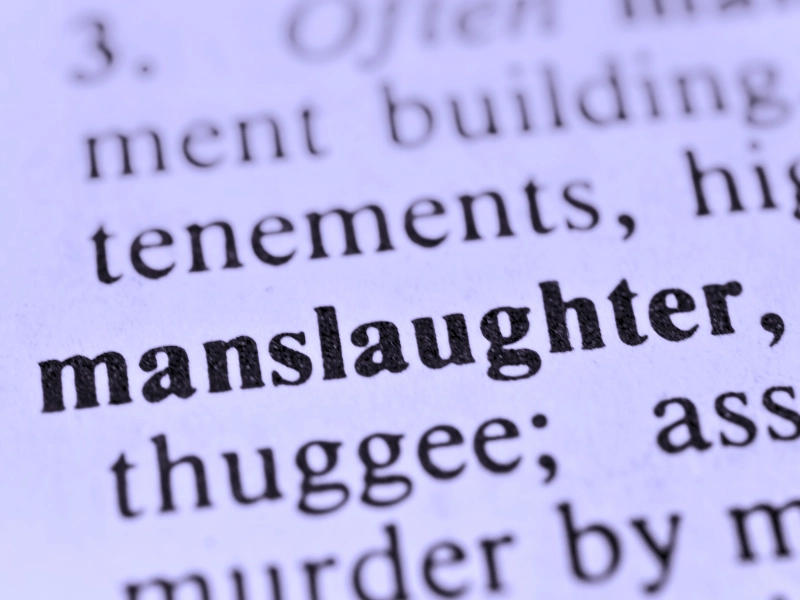An adult can be charged with criminal negligence or even manslaughter when co-sleeping results in the death of an infant or young child. Although advocates claim that co-sleeping is a safe way to encourage family bonding, this type of sleeping arrangement often results in suffocation, crushing or falling injuries and deaths.

Table of Contents
Co-Sleeping Poses Risks for Infants
According to the American Academy of Pediatrics, approximately 3,500 infants die each year from sleep-related deaths including sudden infant death syndrome (SIDS) and accidental suffocation and strangulation caused by co-sleeping arrangements with parents and caregivers. Although co-sleeping with babies is an age-old practice and the norm in many cultures, it poses serious risks of injuries and death for infants. Some advocates of co-sleeping practices encourage it to promote breastfeeding and family bonding, however, the risks of injury and death are very real. Many infants are accidentally injured when parents roll over on them, pushing their face into a pillow or bedding which causes suffocation or strangulation. A recent study done by the Centers for Disease Control and Prevention (CDC) shows that infant deaths from co-sleeping have quadrupled over the last 20 years in the United States.
Across the country, there have been numerous cases of infant injuries and death caused by co-sleeping. Most of these cases are viewed as tragic accidents that call for parenting classes and health education, but some law enforcement officials take a harsher stand. If cases involve alcohol and/or drugs, manslaughter charges are often invoked due to child neglect or child endangerment. Recently in Minnesota, a grandmother was charged with two counts of manslaughter when her infant grandson died in her bed from suffocation. Police officials confirmed that she took a mixture of alcohol and prescription medications before going to bed which caused her to fall asleep on the infant.
In most states, a person can be charged with criminal negligence or manslaughter for disregarding a substantial risk of causing serious bodily harm or death. In a Georgia court of appeals, the court convicted a mother of involuntary manslaughter for the death of her infant son, even though it was the father who rolled over on the baby causing death from suffocation. It was found that both parents had been drinking heavily before going to bed, but the mother actually put the infant in the bed.
Cases involving infant death from co-sleeping are typically difficult to prosecute due to the lack of physical evidence and the reluctance of family members and friends to testify against the parent. In a Florida case, a man admitted to killing his infant daughter by accidentally rolling over on her in a drunken stupor, but he was acquitted after family members failed to testify against him in court. In many co-sleeping death cases, jurors tend to sympathize with the grieving parents and decide that the baby’s death is punishment enough.
Safe Sleeping Guides for Infants
With co-sleeping deaths on the rise in the U.S., the Academy of Pediatrics urges parents to avoid sharing their bed with their babies during sleep. To reduce the risk of infant injuries and death, the academy recommends certain guidelines that will protect babies while they are sleeping:
Cribs and Bassinets
Parents, grandparents, and caregivers are urged to put babies in their own crib or bassinet. Infant beds can be in the parents’ bedroom and positioned close to the parents’ bed to make supervision, feedings, and cuddling easier and more convenient, but sharing the bed with an infant should be avoided.
Sleeping Position
The academy recommends placing babies on their back to sleep, not on their stomach or their side. Infants who fall asleep on their stomach or side are at higher risk of suffocation because they can roll over onto their face easier and become trapped in this position.
Bedding
Infant cribs and bassinets should have a firm sleep surface covered only by a sheet. Loose blankets, pillows, and toys should be kept out cribs and bassinets when a baby is sleeping to prevent suffocation and strangulation. Parents and caregivers should never put an infant to sleep on sofas, chairs, rugs, or beds with soft surfaces that can easily smother a tiny baby who can’t roll over.
Sleeping Environment
Infants should sleep in a safe environment that’s free of toxic fumes and gases from certain inhalants and cigarettes. Parents or caregivers who smoke should go outside when lighting up or consider giving up cigarettes completely to prevent childhood illnesses like asthma, allergies, and respiratory diseases.
Sleeping Temperature
Parents should not put infants under blankets or covers when they are sleeping. Babies can easily overheat because they can’t move freely during the night. Flushed cheeks, damp skin or hair, wet clothing, and sweating are all signs of overheating for an infant.





